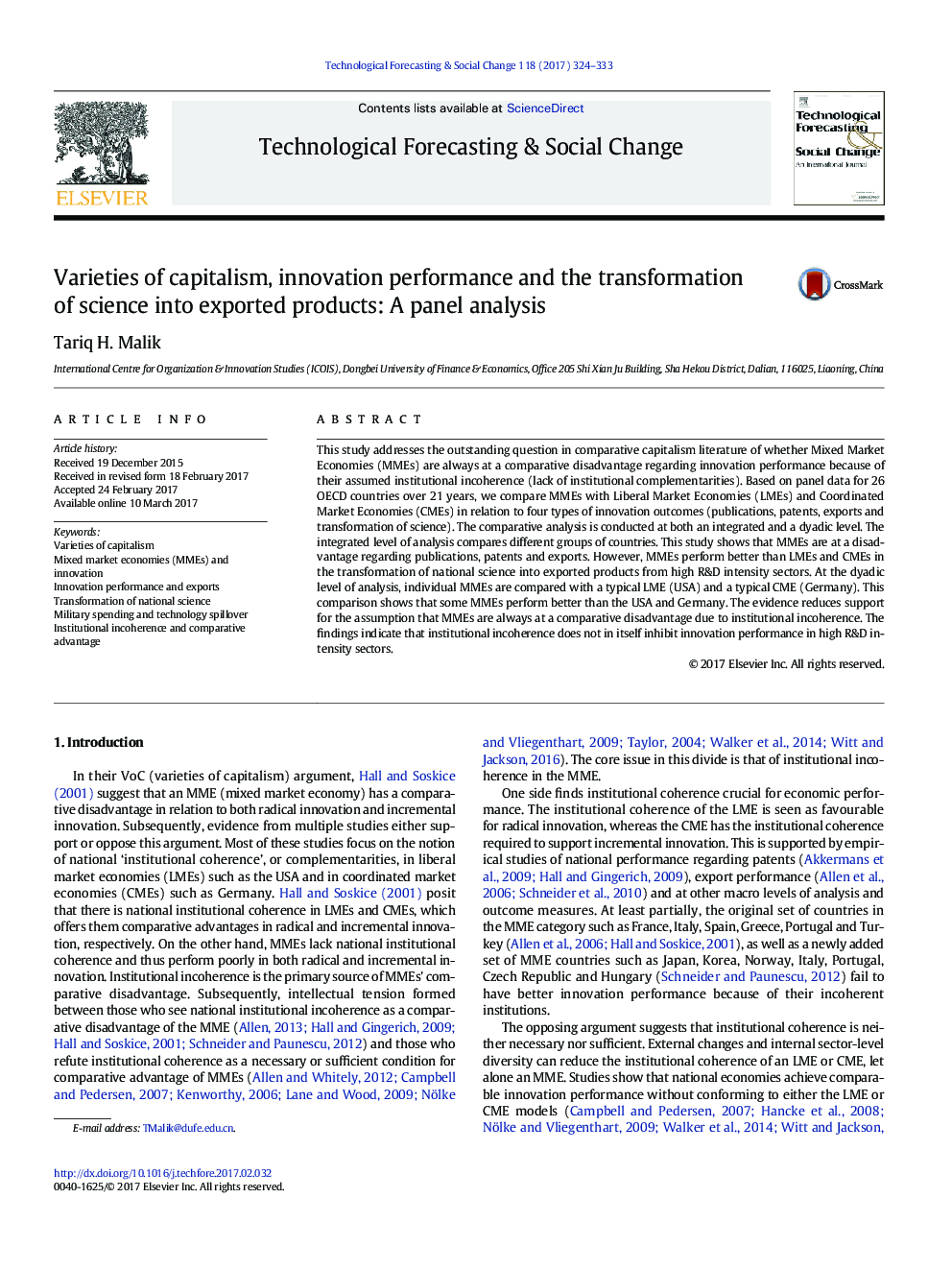| کد مقاله | کد نشریه | سال انتشار | مقاله انگلیسی | نسخه تمام متن |
|---|---|---|---|---|
| 5037055 | 1472383 | 2017 | 10 صفحه PDF | دانلود رایگان |
- Mixed market economy (MME) compared to liberal and coordinated economies.
- MMEs have mixed comparative advantages/disadvantages on cluster levels.
- MMEs have mixed comparative advantages/disadvantages on dyadic level.
- Military expenditure (controlled) predicts an increase in high technology exports.
This study addresses the outstanding question in comparative capitalism literature of whether Mixed Market Economies (MMEs) are always at a comparative disadvantage regarding innovation performance because of their assumed institutional incoherence (lack of institutional complementarities). Based on panel data for 26 OECD countries over 21Â years, we compare MMEs with Liberal Market Economies (LMEs) and Coordinated Market Economies (CMEs) in relation to four types of innovation outcomes (publications, patents, exports and transformation of science). The comparative analysis is conducted at both an integrated and a dyadic level. The integrated level of analysis compares different groups of countries. This study shows that MMEs are at a disadvantage regarding publications, patents and exports. However, MMEs perform better than LMEs and CMEs in the transformation of national science into exported products from high R&D intensity sectors. At the dyadic level of analysis, individual MMEs are compared with a typical LME (USA) and a typical CME (Germany). This comparison shows that some MMEs perform better than the USA and Germany. The evidence reduces support for the assumption that MMEs are always at a comparative disadvantage due to institutional incoherence. The findings indicate that institutional incoherence does not in itself inhibit innovation performance in high R&D intensity sectors.
68
Journal: Technological Forecasting and Social Change - Volume 118, May 2017, Pages 324-333
